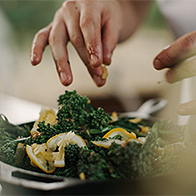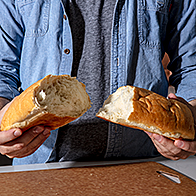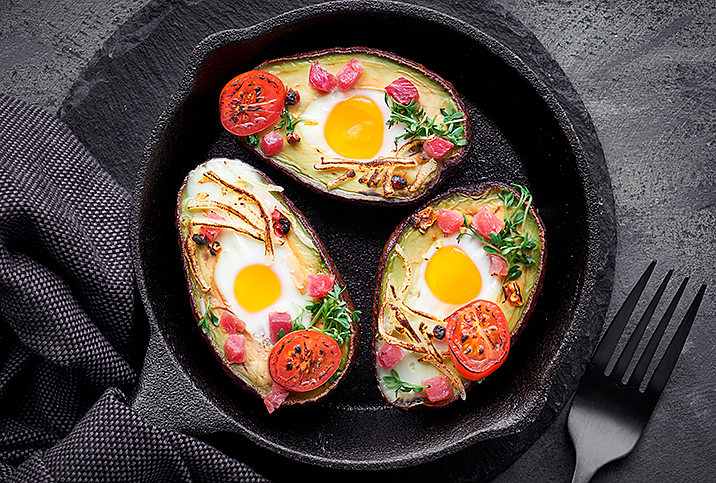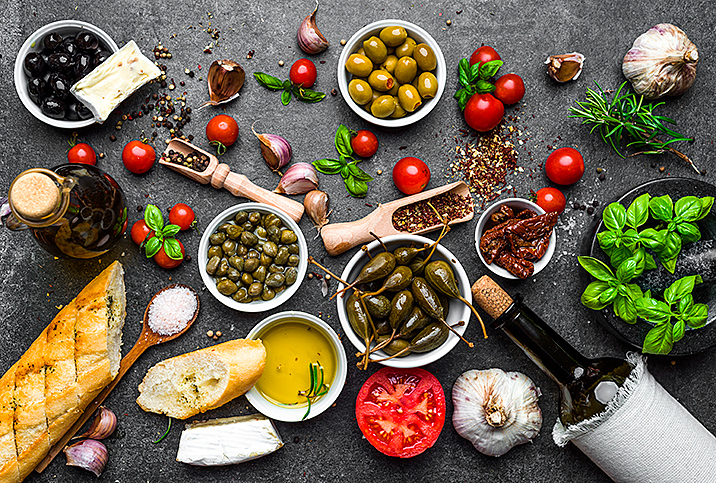Go Gluten-Free and You May Improve Fertility

Research suggests diet can have an impact on a person's sexual health and fertility, and some digestive conditions can interfere with the normal absorption of nutrients, inhibiting the ability to conceive.
Experts have known for some time that women with celiac disease—an autoimmune condition that damages the digestive system and is triggered by a protein found in certain grains, such as wheat, barley and rye—are more likely to experience pregnancy complications and infertility.
However, there is less known about how this digestive disorder affects men's fertility, and some very preliminary research suggests there's a connection.
What we know about celiac disease and male fertility
At baseline, men with celiac disease may experience a higher risk for infertility, but more conclusive research is needed. A small observational study published in the 1980s conducted semen analysis in men with celiac disease. For the study, researchers measured plasma testosterone, dihydrotestosterone (DHT), sex-hormone binding globulin, estradiol and serum luteinizing hormone in 41 men with celiac disease, and compared these hormone levels to those of men with Crohn's disease and chronic ill health due to rheumatoid arthritis and Hodgkin's disease. They found men with celiac disease had indications of androgen resistance and decreased semen quality. Androgens are hormones that play a role in reproductive function.
In another study published in 2011, a population-based cohort of 7,121 men in Sweden with celiac disease, found 35 percent of the men did not have children by the end of the study's follow-up, but this rate was similar to that of the reference group. The study concluded men with celiac disease have normal fertility levels.
Overall, research on the subject is severely minute. Although there's stronger evidence linking celiac disease and female fertility, there is ongoing suspicion there may also be some risk of fertility problems in men with celiac who are exposed to gluten in their diets.
If I go gluten-free, will my sperm return to normal?
Some experts believe men with celiac disease who opt to go gluten-free could potentially reverse problems associated with fertility, but that will depend on the exact cause. For example, if inflammation from celiac is affecting fertility—it's still under investigation—a gluten-free diet could offer hope.
"It has been conservatively estimated that sperm mature over approximately 60 to 70 days from origin to ejaculation," explained Brian Levine M.D., practice director at CCRM New York, a fertility center. "In the setting of a flare of celiac disease as a result of consuming gluten, it would be expected that once the inflammation has subsided, it will take two to three months for normal sperm function."
How do I know if I have celiac disease?
Men who are having trouble conceiving with their partner may wonder if they should be tested for celiac disease. While a simple blood test looking for gluten antibodies is all that is required, this test should only be done after consulting with your physician, Levine said. But don't rely on an online test. Diagnosis by a physician (likely a gastroenterologist) is required.
"Furthermore, the blood antibody test, which looks for the immune response to the proteins found in wheat, rye and barley, is only accurate once the patient is on a gluten-free diet," he said.
Levine added that commercially available genetic tests can estimate a person's predisposition to celiac disease, but these tests are merely suggestive, not diagnostic. If a man notices diet-related health changes, such as when consuming gluten, it is worth discussing with a gastroenterologist, a reproductive endocrinologist or a urologist.
One easy way to address undiagnosed celiac disease or gluten sensitivity is to simply go gluten-free for a while and see what happens, suggested Jessica Titchenal, a certified nutrition specialist. This can be a good approach because some people with celiac disease may not show obvious symptoms.
Some people find a gluten-free diet can reduce overall inflammation and improve digestive health, because many bread products contain fructan, a FODMAP food some people have trouble digesting, she added. It never hurts to try a new diet plan to see what works best—confirm any new specialty diet with your physician—but there isn't any research to suggest a gluten-free diet will improve fertility in people who do not have celiac disease.
What to eat if you have celiac disease
Ultimately, the best way to boost your fertility—and your health in general—is to eat a healthy diet. Gluten-free diets can help but are not miracle cure-alls.
"For men who are trying to conceive, a simple web search for 'fertility diet' can yield overwhelming results," Levine said. "In general, I reinforce to my patients that the scientific data suggests that a diet similar to the Mediterranean diet may have a beneficial impact on fertility and that it is relatively easy to follow."
The Mediterranean diet stresses the importance of consuming healthy fats, whole grains, fruits and vegetables, while avoiding non-fish proteins and simple carbohydrates. Staples of the Mediterranean diet include fatty fish, lean poultry, eggs, olive oil, tree nuts, legumes, low-fat dairy, such as Greek yogurt, and plenty of fresh fruits and vegetables.
Yes, you can still have a sandwich, toast with your eggs and pasta, but find products that don't contain gluten.
Titchenal also recommended limiting alcohol consumption, drinking more water and avoiding processed foods.
"Eliminate processed foods and fast foods and what I call 'food-like products,' stuff that you can't pronounce because most of the ingredients are not actual foods," she said.
Yes, you can still have a sandwich, toast with your eggs and pasta, but find products that don't contain gluten. These days, there are a ton of options available. Read labels carefully to ensure the gluten-free bread you choose isn't loaded with sugar, for example.
For grains, Titchenal recommended brown rice, amaranth and quinoa, as long as you get a variety of nutrients from several sources.
Eat foods you love so you don't feel trapped, she added.
"I really am a fan of balancing, enjoying what you're eating, but making sure you're getting a lot of nutritional bang for your buck with lots of nutrient-dense foods," Titchenal said.




















